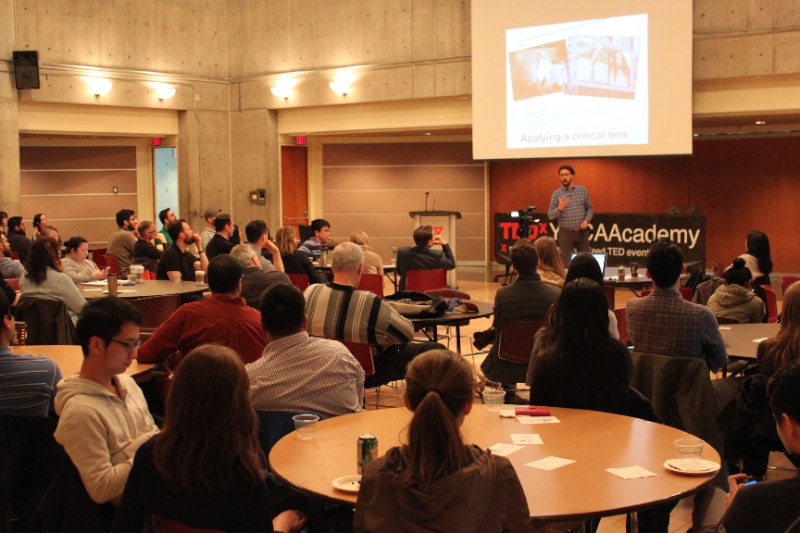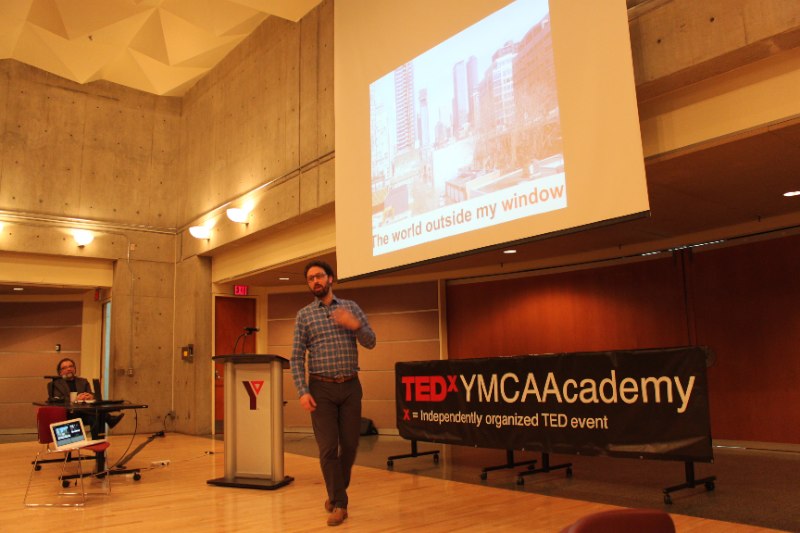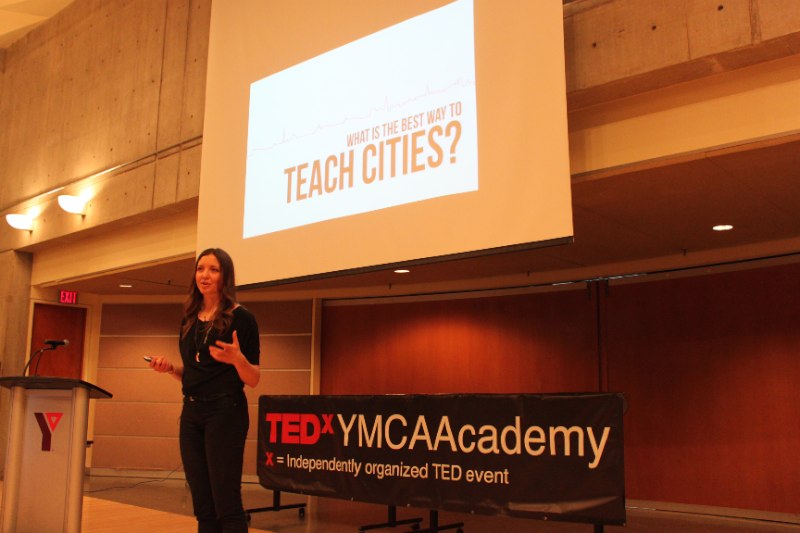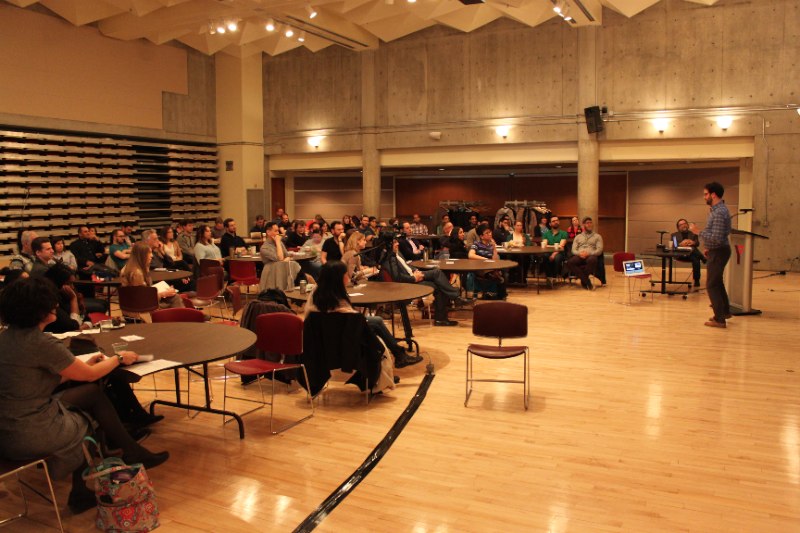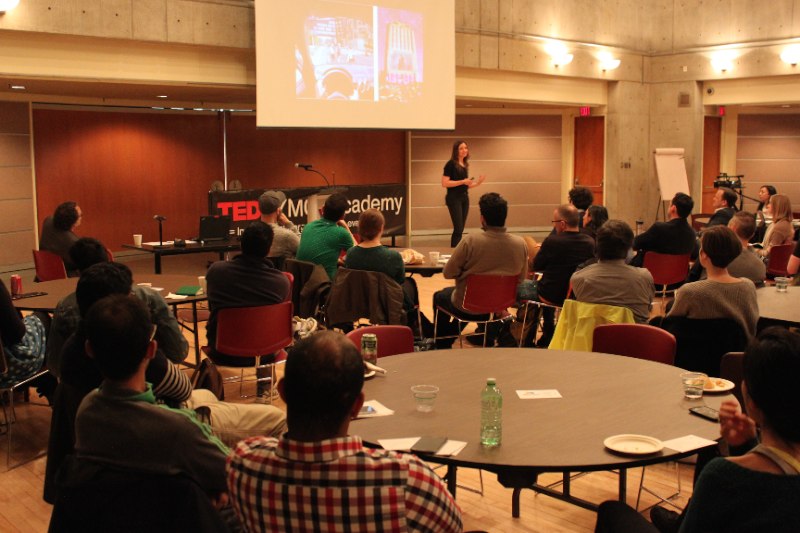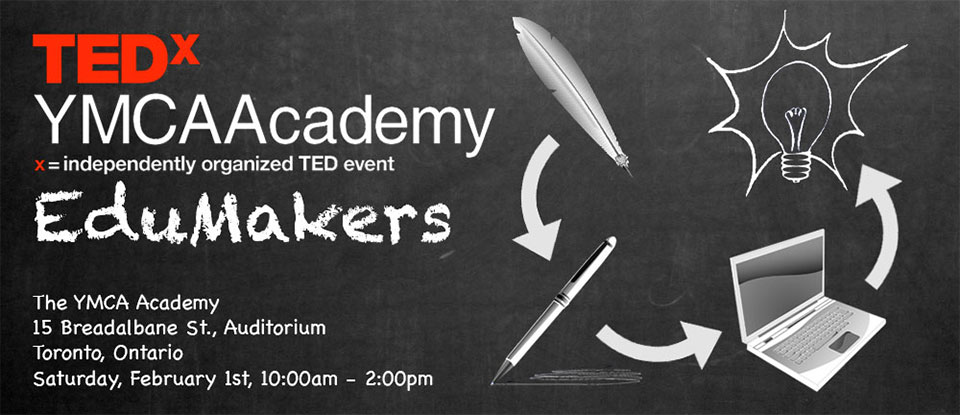Each year, The YMCA Academy hosts its own TEDx event – TEDxYMCAAcademy. This year, our event focused on “Edumakers” – on the relationships to be found amongst educators, entrepreneurs and technologies. We brought together an amazing list of speakers, each of whom spoke on an issue surrounding education generally, and often specifically geared towards the education of students who learn differently.
Each of these presentations is captured on video, as well as being live-streamed on the web. After the event, Academy students are involved in the editing and final production of the videos for uploading to the TEDx YouTube site. I’m happy to say that all videos are now uploaded to the site. Have a look! Video and audio quality is excellent, as are the talks themselves.
Youth in Technology: Ashley Lewis
Ashley Jane Lewis is a Maker and Youth Tech Educator. She spent a year and a half leading the ground-up development of Girls Learning Code, an attempt to encourage more females in the technology field. She designs content for the TIFF Bell Lightbox, creating an Arduino gadget-making workshop for the Bond Exhibit and coding workshops for their DigiPlaySpace.
Power in the classroom: Eric Rosenberg
What happens when power rests in the hands of teachers? What does it look like when students take the wheel of their own learning, and does it impact students’ capacity to navigate the world beyond the classroom? Eric Rosenberg addresses these and other questions, sharing his experience using student-directed, project-based approaches to address conventional curriculum.
The League of Regions: Douglas Vallance & Matthew Henderson
Doug and Matt will be focusing on The League of Regions, a year-long simulation, role-playing game, designed to promote cross-curricular thinking, real-world problem solving skills, group collaboration and independent decision making skills. The game is based around creating and maintaining a civilization that experiences real-world scenarios, with the final goal of progressing that civilization towards a developed status.
This game is intended to develop within students an understanding of the interconnected nature of each curriculum strand and apply it to a real world situation. As a result, when a student is taking part in this game, they will never ask the question, “When will I use this in the real world?” Through game play, students not only gain an understanding that content is connected, but also how the world around them functions without reading it from a book. In this game, they are the ones in control, as they set the course for their own civilization.
Remix Culture for Kids: Juan Gonzalez
The talk will be an account of the work that the FabSpaces team has done over the past year and half around designing a Digital Literacy curriculum to teach kids 8-16 a new way to use video for storytelling.
The ABCs of Resilience: Kathryn Meisner
What is this buzzword, “resilience?” And why should we care? Kathryn will explore the research and real-life applications behind this concept that underpins most of her work. Get ready to relearn your alphabet.
What video games have to teach us: Tom Seliotis
Tom Seliotis speaks about what video games have to teach us about identity and engagement and how we can incorporate these into assessments and evaluations in the classroom. This was the basis for his Master’s thesis involving how the history of science is portrayed to students in textbooks. He was a featured speaker at the 2013 annual conference of the Science Teachers of Ontario.
Teaching Musically: Ryan Burwell
Ryan will share the elements of music that have resonated most richly with him and his students, and will suggest ways of applying these elements to teaching practice. Focusing on the skills of improvisation and composition, he will try to convince you that curriculum design needs to be thought of like the pentatonic scale, and that you don’t need to be a music teacher to teach musically.
The Awkwardness of Collaboration: Jennifer Chan
We have all been there, at the crossroads of trying to approach the conversation of how we are going to work together, facilitate our mutual success and wanting to tie each other up with rubber bands. There is a delicate balance to strike in the zone of playing nice, giving time to build trusting relationships and navigating how much to push one another. If at the root of it all, collaboration is meant to be greater at its sum then how might we question, provoke and iterate through the process?
Video Games and Education: Zareh Demirdji
Whether we want to admit it or not, video games and the video game industry are here to stay, with no apparent signs of slowing down. Many youth (and adults) spend many hours and a lot of money playing video games, despite the frustrations from levels and/or missions that seem impossible to pass. The reason for this perseverance is the inherent reward system video games offer to keeps players engaged and coming back for more. Imagine being able to run a classroom where despite difficult challenges, students keep coming back and continuing their efforts in order master their understanding of the content. With the advances in video game design and content, the use of video games in the classroom can easily be made into a reality where students can not only learn curriculum expectation, but experience them in live time instead of simply being told about them.
The Future of Play: Rob Whent
Gameification is widely anticipated as the future of education. If this is so, what is the future of play? What does our digital world look like when our devices understand how we learn and configure themselves to maximize that potential?
For more information on TEDxYMCAAcademy: Edumakers, or upcoming TEDxYMCAAcademy events please visit the official website.

